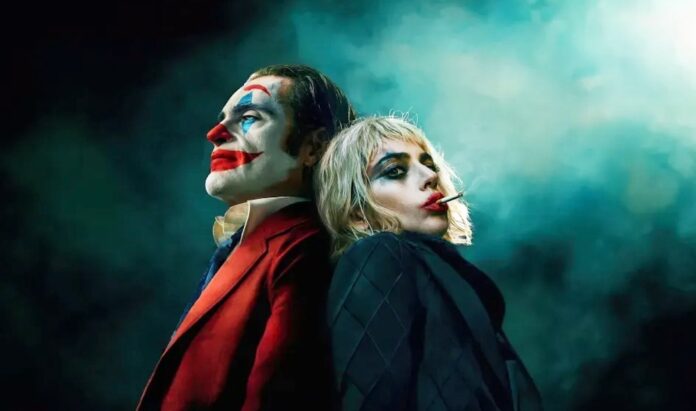Film critic Jesse Hawthorne Ficks breaks down his favorite films of the year that was, in his preferred format of double-headers. Stay tuned for part two of his 2024 breakdown! See part two here, and check out critic Dennis Harvey’s favorites of the year here.
1. Joker: Folie À Deux (Todd Phillips, USA, 138 minutes)
Quite simply, Todd Phillips’ Joker: Folie À Deux (2024) is among the greatest films of the era. Similar to such recent overlooked cinematic treasures like Wes Anderson’s Asteroid City (2023), Damien Chazelle’s Babylon (2022), and Jordan Peele’s Nope (2022), audiences and critics seem adamant in refusing to put out the energy to uncover the infinite amount of monumental maneuvers made in these maligned masterpieces.
The phenomenon reminds me of the critical reception of Orson Welles when, upon coming out of the Great Depression and at the peak of WWII, he delivered The Magnificent Ambersons (1942), a cinematically lavish period piece that relentlessly illustrates the slow descent of its anti-hero’s inevitable comeuppance. Similar to Phillips, Welles had been given 100% creative control on his previous project, Citizen Kane (1941). While Kane was not a commercial hit like Phillips’ first Joker (2019), it did pave a road for the young filmmaker to defy everyone and audaciously double-down on his next project. Unfortunately, RKO Studios was so put-off by Welles’ examination of changing social issues, the studio re-edited and even reshot much of The Magnificent Ambersons, removing nearly a full hour of footage, which has still never been recovered. Thankfully, Warner Brothers did not do this to Joker: Folie À Deux.
Phillips’ decision to humanize Arthur Fleck is a risky one. Many of the fans from the first film may see this as a betrayal. A slew of song and dance numbers make this second installment much more daring than a mere rehash of the previous film’s superhero subversions. If one pays attention to these covers (which range from George Gershwin, Burt Bacharach, Nick Cave, The Bee Gees and Daniel Johnston), they can be read as expressionist feelings of Arthur’s childhood, similar to the TV and movie references in the first film. (It wasn’t a coincidence that Robert De Niro co-starred in the first Joker movie, which had its main character emulating Taxi Driver and King of Comedy.) Perhaps, Arthur listened to these songs with his mother and is now strolling down memory lane while attempting to “make music” with Lady Gaga’s Lee, his very first relationship and the first person besides his mom who seemingly loves him.
One may notice that everyone from Arthur’s lawyer (Catherine Keener) to Arthur’s influential inmate, Ricky (Jacob Lofland) to Arthur’s complicated asylum guard (Brenden Gleeson) shifts between being a guardian-angel, abusive-demon or perhaps even a figment of Arthur’s imagination. That brings the meaning of the title into the light: folie a deux refers to “the development of similar delusional beliefs or hallucinations between two or more people, who are in a close relationship.” Which of these characters are real and which are in Arthur’s mind?
The movie even begins with a poignant, Looney Tunes-esque cartoon—designed by the incredible Sylvain Chomet of The Triplets of Bellville (2003) and The Illusionist (2010), entitled “Me and My Shadow.” Among its countless Easter eggs are movie posters for Bob Fosse’s Sweet Charity (1969), Astaire & Rogers’ Shall We Dance (1937) and Charlie Chaplin’s Modern Times (1936). Each connects to Arthur (and Lee’s) struggles in Folie À Deux by transgressively exploring how life imitates art by way of down-and-out “nobodies,” who ultimately get caught in full-blown firestorms of cultural chaos. Even a movie theater marquee near Arthur’s apartment advertises Roger Corman’s incredible, low-budget satire A Bucket of Blood (1959), which follows a seemingly dimwitted busboy and his sociopathic rise to fame within the beatnik art scene. These aren’t just random references; they are part of the fabric that holds everything together for Arthur.
This movie is made for audiences to revisit. It is also a movie made for audiences who typically “hate musicals”. Carrying out the harsh truths from revisionist musicals such as Jacques Demy’s Umbrellas of Cherbourg (1964) and Lars von Trier’s Dancer in the Dark (2000), Phillips purposefully focuses the sarcastic wisdom of Vincente Minnelli’s The Bandwagon (1953) at the center of Folie À Deux, even screening that movie to Arthur and his fellow inmates in Arkham State Hospital. One may notice Phillips’ meta-musical self-awareness when Arthur and Lee stop mid-song, look directly at the audience and state, “I don’t think we’re giving the audience what they want.” (Another can be noticed when Arthur cries during The Bandwagon’s musical number “That’s Entertainment,” while his so-called “true love” is so bored that she literally gets up and burns the entire movie house down.)
In conclusion, I find Joaquin Phoenix even more remarkable here than in his Oscar-winning achievement of the first film. Add to that the brilliant turn by Stefani Joanne Angelina Germanotta (aka Lady Gaga), who expertly unlearned many of her usual skills to become a completely different character. Phoenix’s enigmatically raw singing and dancing (which were all done live) line up perfectly alongside Gaga’s mesmerizing performance, making this dynamic duo quite frankly, unmatched for me this year. With one exception: The courtroom-showdown with Leigh Gill, who returns with an Oscar-worthy performance as Arthur’s former clown co-worker.
Watching Arthur flip from rooting for his opposition to interrogating in the voice of WB cartoon character Forghorn Leghorn, to breaking character while laughing at Gary Puddles’ name, to ruthlessly imitating his traumatized victim’s accent, all the while side-eye-rolling the judge and jury, ranks near the top of the greatest scenes in contemporary cinema. It is very rare when a major studio lets a filmmaker “get away with it” (Citizen Kane, Apocalypse Now, Gremlins 2: The New Batch) and perhaps in the years to come, audiences will find their way towards this cinematic coup.
Available to rent on all major streaming services.
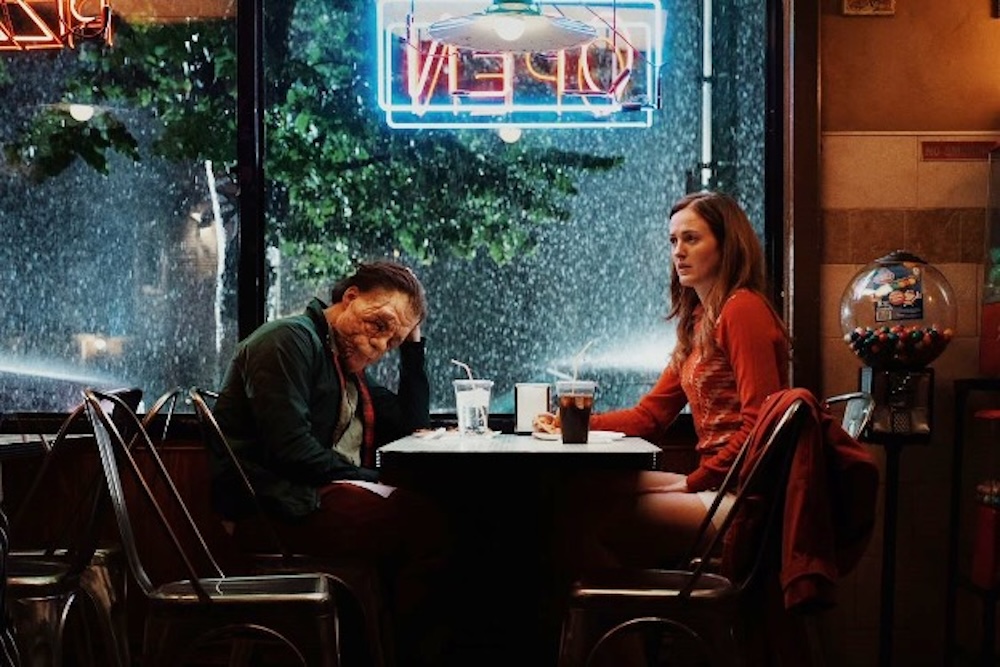
+ (plays with) A Different Man (Aaron Schimberg, USA, 112 minutes)
This hilarious and uncompromised dark comedy carries the existential humor of David Lynch, the Coen Brothers, and Woody Allen, while giving Sebastian Stan the most brilliant Pandora’s box performance of 2024. Viewers follow an actor who plays a man, who is an actor who becomes a different man, who accidentally becomes an actor attempting to play a character, that was originally based on the man who he once was.
Unfortunately, the usually ingenious production company A24 truly dropped the distribution ball for this extraordinary movie, which just nabbed a Golden Globe for Sebastian Stan as Best Actor in a Comedy/Musical, as well as a shortlist spot from the Academy Awards for Mike Marino’s groundbreaking make-up prosthetics. This being the second feature that writer-director Aaron Schimberg has worked on with co-star Adam Pearson (the first being Chained For Life [2019]) Pearson steals every scene he’s in. Add to that the ever-charismatic Renate Reinsve (star of The Worst Person in the World), Umberto Smerilli’s haunting original score, and Wyatt Garfield’s impeccably surreal cinematography, and this deliciously disarming film only gets better and better upon multiple viewings.
Available to rent on all major streaming services.
2. Do Not Expect Too Much from the End of the World (Radu Jude, Romania/Croatia/France/Luxembourg, 163 minutes)
If you agree that comedies are few and far between these days, I highly recommend this unstoppably hilarious 163-minute Romanian satire. Director Radu Jude has made quite a name for himself, bringing the same kind of wit and insanity as 1960s Jean-Luc Godard with contemporary troublemaker Sascha Baron Cohen (of Borat and Ali G.) Lead star Ilinca Manolache first appeared in Jude’s previous films I Do Not Care If We Go Down in History as Barbarians (2018), and Bad Luck Banging or Loony Porn (2021). Here, she is so addictively hysterical as “an overworked and underpaid production assistant driving around Bucharest, attempting to shoot the casting for a workplace safety video, commissioned by a multinational company,” that I could have kept watching her for another 163 minutes. Did I mention that the legendary cult filmmaker Uwe Boll (Alone in the Dark, BloodRayne, and Postal) appears in one of the best cameos of the year!?! Radu Jude is saving cinema.
Available to stream on Mubi.
+ (plays with) The Seed of the Sacred Fig (Mohammad Rasoulof, Iran/Germany/France, 167 minutes)
An astoundingly gripping thriller that was shot in Iran, entirely in secret, following a judge who upon losing his gun, attempts to protect his reputation and his family as they grapple with nationwide political protests. It won the Special Jury Prize at this past year’s 77th Cannes Film Festival (along with snagging Best International Feature by the San Francisco Bay Area Film Critics Circle.) Director Mohammad Rasoulof fled Iran after being sentenced to eight years in prison by Iran’s Islamic Revolutionary Court on charges connected to his filmmaking and activism. The fact that there is no possibility of appeal makes the production, completion, and release of the movie that much more death-defying.
The film is distributed by NEON in the USA and is not yet available to stream.
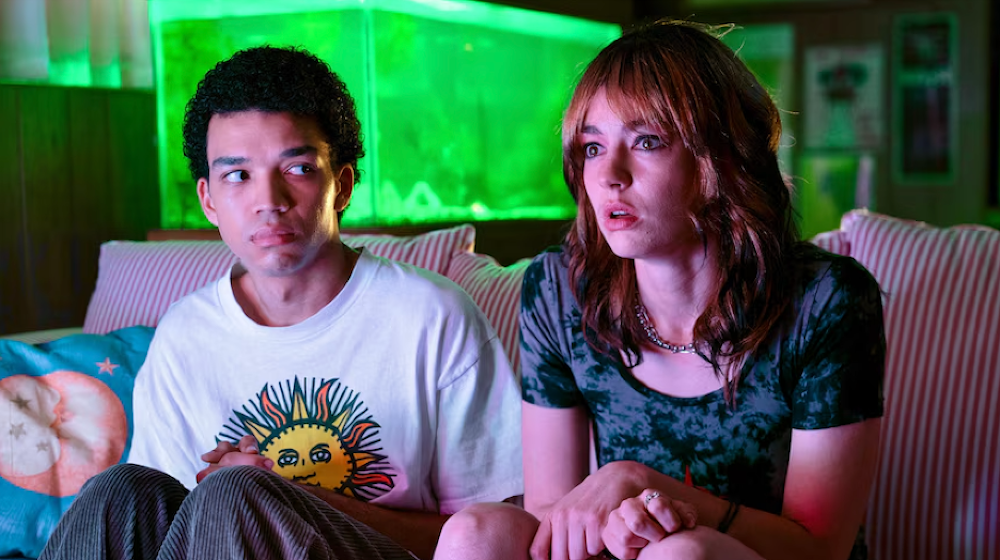
3. I Saw the TV Glow (Jane Schoenbrun, USA, 100 minutes)
People who relate more to their favorite 1990s TV series (Twin Peaks, X-Files, Buffy the Vampire Slayer) than to the so-called “real world” will fall blissfully into the ethereal spiral of this neon nightmare. Take a chance and get drenched in “The Pink Opaque.” Don’t forget to watch Shoenbrun’s inspired 2021 first feature We’re All Going to the World’s Fair (2021) as well as the wondrous music video for Lucy Dacus’ song “Night Shift.”
Available to rent on all major streaming services.
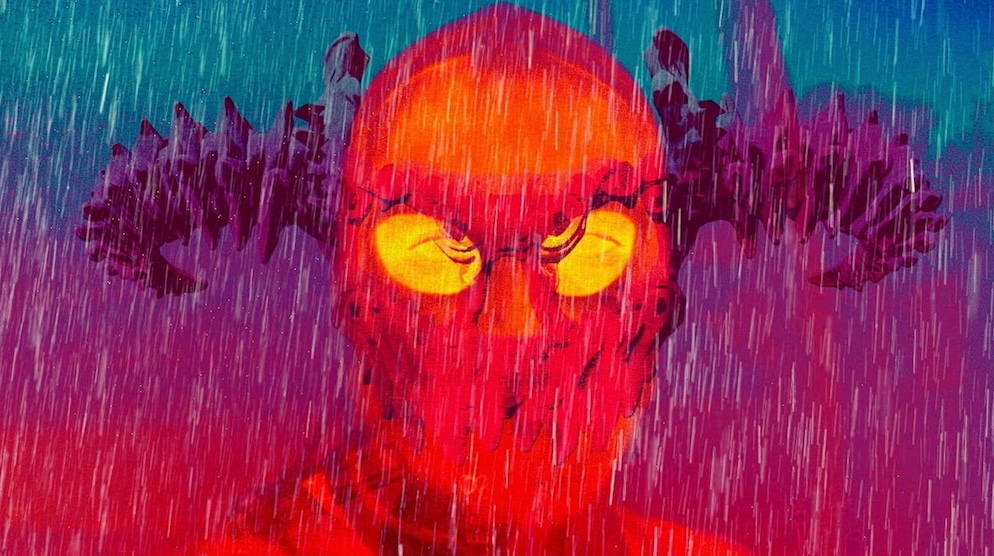
+ (plays with) Aggro Dr1ft (Harmony Korine, USA, 80 minutes)
“I have never made anything like this. I was trying not to make a movie. I don’t know if it will be a scandal, but it will be its own statement,” says Harmony Korine. Similar to the director’s overlooked treasure Trash Humpers (2009), which was shot entirely on worn-out VHS home video, his latest “non-movie” Aggro Dr1ft was shot entirely using infrared cameras. Do not be fooled by Korine’s purposeful elusiveness; this fascinating feature is resounding reflection of our times, gorgeously set to a stunning score by ArabMuzik and following a transcendental style from start to finish. Korine has already finished another 80-minute anti-movie entitled Baby Invasion (2024), structured as a first-person shooter game that follows a group of mercenaries disguised with AI baby faces as they invade mansions of the wealthy and powerful. Long live Harmony Korine.
Korine’s own multimedia company EDGLRD has the film available for streaming.
4. Harvest (Athina Rachel Tsangari, United Kingdom / Germany / USA, 131 minutes)
Taking place in a dying remote village in the Middle Ages, marked by superstition and the scapegoating of outsiders, this movie sees method actor and musician extraordinaire Caleb Landry Jones so completely committed to his role as the “village idiot” that he stayed in-character throughout the entire production, even while attending Venice Film Festival to promote Luc Besson’s incredibly underrated Dogman. The actor vibrates with the insatiability of Klaus Kinski and his thoughtful, even, casual narration brought to mind such revisionist Westerns as Terrence Malick’s Days of Heaven (1978) and Jane Campion’s The Piano (1993).
Writer-director Tsangari, who started her career as a producer for Yorgos Lanthimos’ earliest films like Dogtooth (2009) and Alps (2011), and cinematographer Sean Price Williams have endowed their medieval Scottish countryside with a melancholic fondness, shooting entirely with natural light and on 35mm film. NOTE: Due to the extremely thick Scottish accents, make sure to seek out a screening where English subtitles are added.
Unfortunately, Harvest is still seeking American distribution.
+ (plays with) The Devil’s Bath (Veronika Franz & Severin Fiala, Austria / Germany, 121 minutes)
Its press release perfectly captures the eerie aesthetic of Austrian filmmakers Veronika Franz and Severin Fiala’s (of Goodnight Mommy [2014]) latest horror gem: “Austria, 18th century, forests surround villages, killing a baby gets a woman sentenced to death, Agnes readies for married life with her beloved. But her mind and heart grow heavy. A gloomy path alone, evil thoughts arising.” Winning the Silver Bear for an Outstanding Artistic Contribution at this year’s Berlin International Film Festival, this comprehensively researched, bleaker-than-bleak descent into the utter deconstruction of medieval marriage is not exactly an “enjoyable” experience.
But for those who accept the double dare, the most surprising element of this slow-burn masterpiece is musician Anja Plaschg, whose debut lead acting role is a literal “knock-down, drag-out” tour-de-force performance. Plaschg who performs under the name Soap&Skin also constructed the film’s score, which is much more of a terrifying soundscape than typical soundtrack. Fans of Carl Theodor Dreyer, Robert Bresson, and Michael Haneke should make a direct beeline to this unusual offering.
Available on all major streaming sites.

5. Anora (Sean Baker, USA, 139 minutes)
Sean Baker’s latest (and perhaps greatest) masterpiece is easily one of the most enjoyable movie-going experiences of 2024. Mikey Madison, who first wowed audiences with her “fiery” performance as one of Charles Manson’s disciples in Quentin Tarantino’s Once Upon a Time in Hollywood (2019), has established herself as an all-out classic movie star. Inhabiting an exotic dancer from Brooklyn’s Brighton Beach who is “thrust into the lap of luxury when she’s whisked away on a whirlwind romance with a wealthy young customer,” Baker ingeniously combines the screwball comedy vocabulary of Peter Bogdanovich, Preston Sturges, and John Cassavetes. The filmmaker’s empathetic tendencies towards neglected individuals—see Tangerine (2015), The Florida Project (2017), and Red Rocket (2021)—along with the best understated performance of the year by Yura Borisov, has already earned the film the Palme d’Or at this year’s Cannes Film Festival and is my frontrunner for Best Picture at the Oscars. Much like with Yorgos Lanthimos’ Poor Things (2023), I find myself unpacking the movie’s trailblazing conclusion over and over again. Don’t take Sean Baker for granted. This is the kind of cinema that can save Hollywood.
Available to rent on all major streaming services.
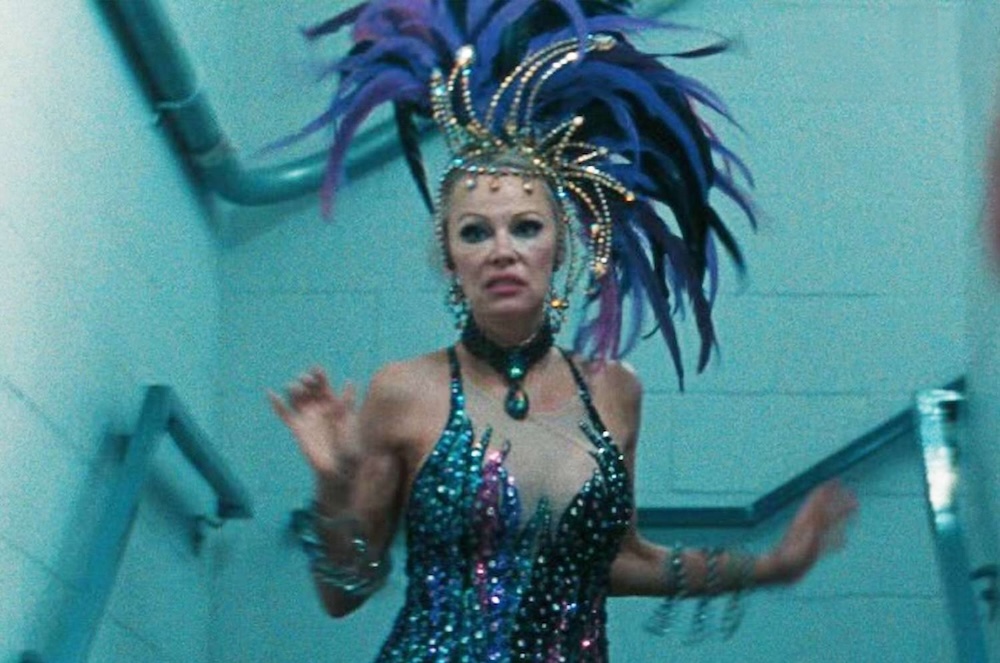
+ (plays with) The Last Showgirl (Gia Coppola, USA, 89 minutes)
Combining the grit and beauty of Darren Aronofsky’s The Wrestler (2008) with Paul Verhoeven’s Showgirls (1995), Gia Coppola, the granddaughter of legendary director Francis Ford, has put together a devastating tribute to aging showgirls, a deteriorating Las Vegas, and most importantly, international superstar Pamela Anderson. It is captured gorgeously by Bay Area native cinematographer Autumn Durald Arkapaw, who showcases Las Vegas’s dazzling glow and tough textures by shooting on super 16mm cameras. Throw in Jamie Lee Curtis and Dave Bautista, who deliver immensely memorable performances that rank very high up on my favorite supporting roles of the year list, as well a truly hilarious cameo by Jason Schwartzman.
Yet nothing compares to Pamela Anderson’s nuanced and dedicated interpretation of the film’s lead character Shelly Gardner. In my humble opinion this is, quite literally, the performance of a lifetime. After the Bay Area theatrical premiere, Ms. Anderson took the stage (alongside its 37-year-young director) and shared that for her, this extraordinary opportunity was the beginning of her career. I also urge audiences to stay focused through the credit sequence just to hear the melancholic (and Golden Globe-nominated) new song by Miley Cyrus.
The film will be released theatrically on January 8 by Utopia Pictures.
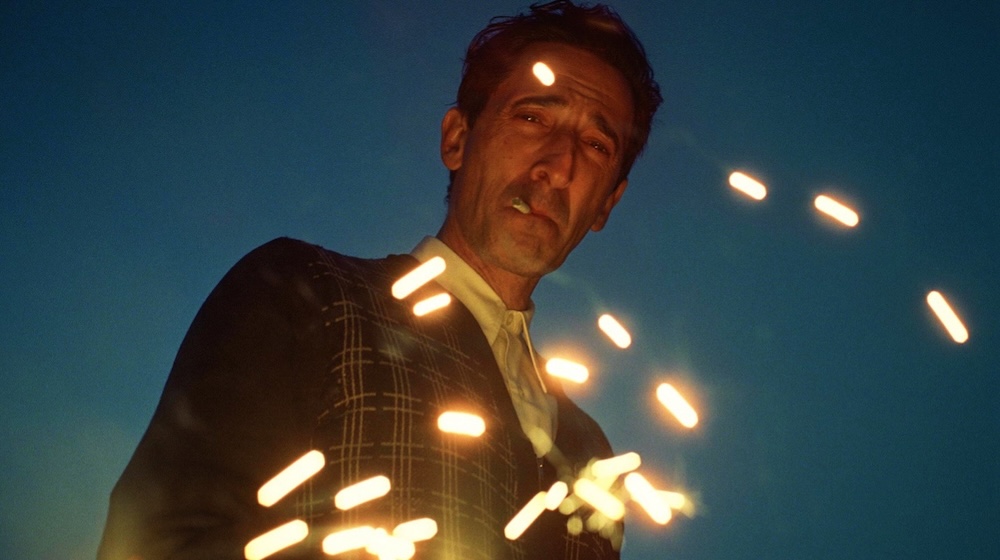
6. The Brutalist (Brady Corbet, USA/United Kingdom/Hungary, 215 minutes)
Brady Corbet’s incredibly nuanced 215-minute epic (complete with an overture and intermission), painstakingly follows a World War II Hungarian architect played by Adrien Brody, who gives yet another colossal performance. As he attempts to rebuild his craft, marriage, and will to live, I dare say that child-actor-turned-director Brady Corbet (whose 2018 directorial debut Vox Lux is still one of the most misunderstood movies of recent years) has matched the stylistic heights and historical relevance as Christopher Nolan’s Oppenheimer (2023).
Jim Jarmusch favorite Isaach De Bankolé is subtly heartbreaking as the architect’s right-hand man, while Felicity Jones does wonders as Brody’s forlorn wife. Guy Pearce who (along with Jones) was just nominated for a Best Supporting Actor Golden Globe, gives a genuinely terrifying (and hilarious) performance as an upper-class philistine who is obsessed with understanding what “true art” is.
Corbet and co-screenwriter Mona Fastvold have spoken at great length as to how The Brutalist is the first American movie since Marlon Brando’s One-Eyed Jacks (1961) to use the VistaVision cameras. This 1950s high resolution widescreen process involved shooting sideways on 35mm film stock, and then rotating it to be scanned at a resolution equivalent to 70mm. This was not a gimmick. They have recreated a long-lost movie-going experience that very well could sweep the Oscars this year.
A24 just released the film theatrically, so keep your eyes glued for a 70mm screening near you.
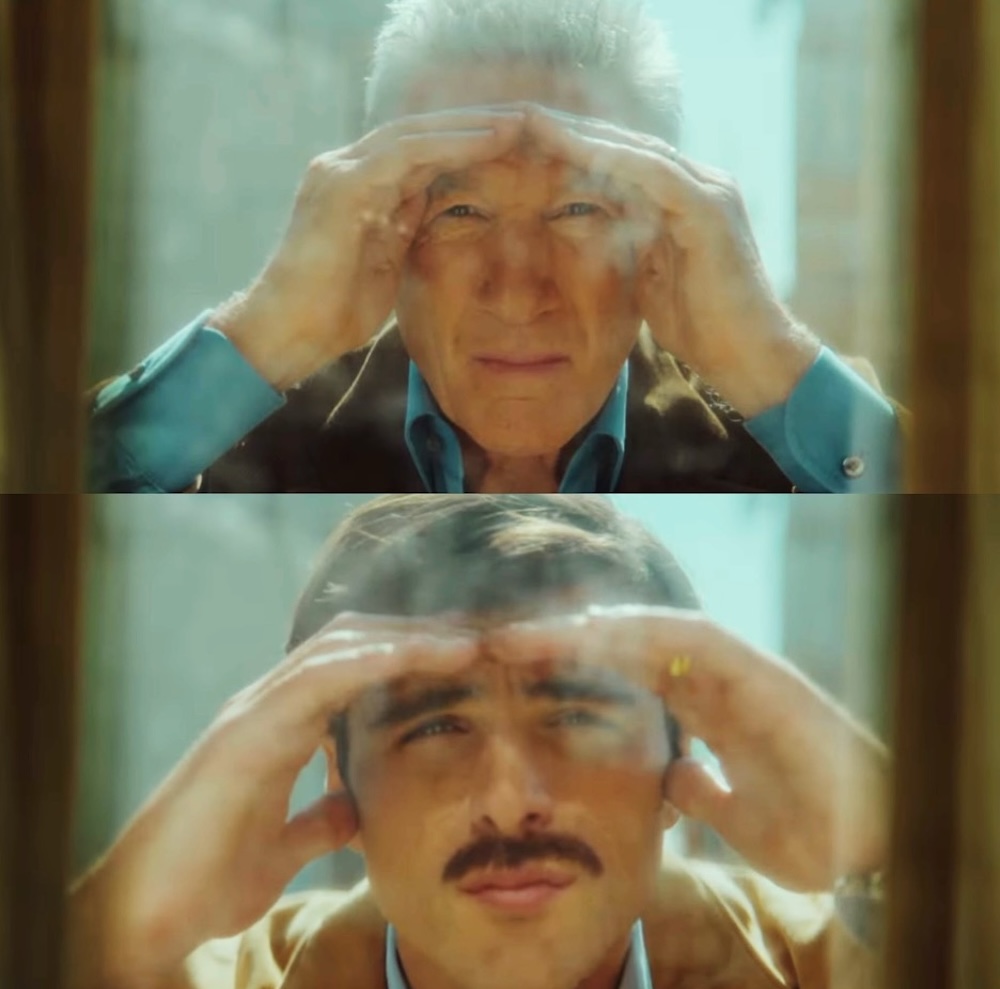
+ (plays with) Oh, Canada (Paul Schrader, USA / Israel, 91 minutes)
Paul Schrader’s latest manifestation focuses on an aging documentary filmmaker’s final reckoning after having fled to Canada to avoid being drafted for the Vietnam war. This emotionally meta, transcendentally zig-zagging adaptation of Russell Banks’ 2021 novel Forgone allows Schrader to showcase his truthful Transcendental style, and gives Richard Gere (who was Schrader’s original surrogate in his American Gigolo in 1980) one of his best performances of recent years. Uma Thurman and Jacob Elordi both shine within this unreliable narrative that may be “misremembered and/or half-invented.” In either case, we are the final witnesses of Schrader’s later-era renaissance. Having previously adapted another Russell Banks novel into the astounding 1997 film Affliction, combined with a string of hospitalizations from long COVID, Paul Schrader has poignantly come full circle with a genuinely graceful film that will resonate for many years after the auteur transcends this earth. (Until then, he’s got two more projects on the horizon.)
Available to stream at Kino Lorber, which will release the film on VOD and digital platforms January 21.
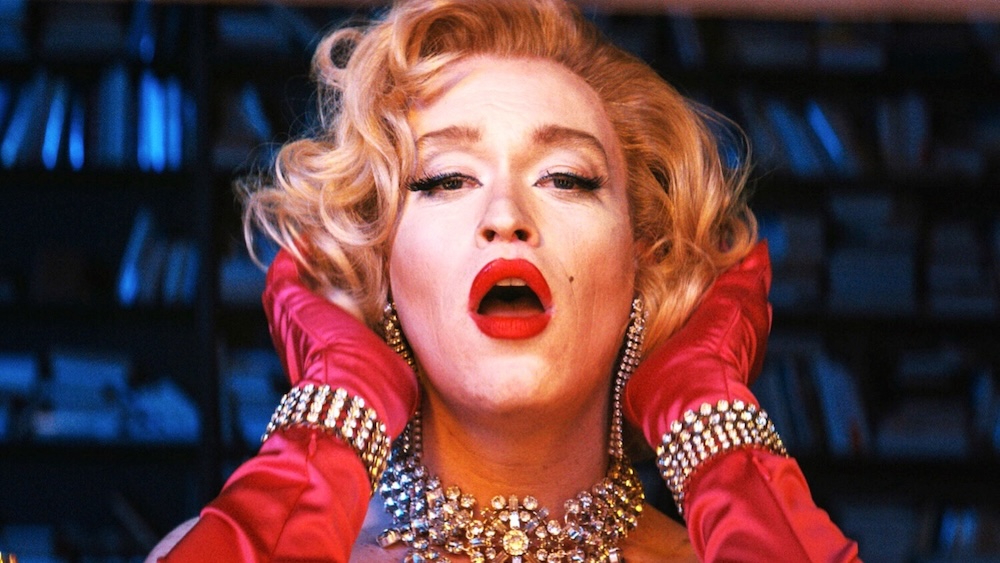
7. Dogman (Luc Besson, France, 115 minutes)
Luc Besson is back with an absolutely unrestrained explosion of off-beat genre filmmaking, which features method actor Caleb Landry Jones in yet another tantalizing performance. Besson’s unique combination of gangster violence with sentimental romanticism is fearlessly flailing in every direction one could imagine here. The press release simply states, “set in New Jersey, a man named Doug who was abused by his father, has trained a pack of dogs to steal jewelry and protect people in need.” Did it mention Doug also has a weekly cabaret act, knows every play of Shakespeare by heart, and loves dogs more than humans!?! The writer-director of The Fifth Element (1997), Lucy (2014), Leon: The Professional (1994), and La Femme Nikita (1990) has added another cult classic to his repertoire. Besson just wrapped his own adaptation of Bram Stoker’s 1897 novel, entitled Dracula: A Love Tale (2025), starring Landry Jones as Dracula and Christoph Waltz as the priest!
Available on all major streaming services.

+ (plays with) Mars Express (Jérémie Périn, France, 89 minutes)
This stunning French cyberpunk extravaganza is definitely for fans of Japanese anime as well as for folks who get a bit overwhelmed by the fans of Japanese anime. Jam-packed with many elements from such sci-fi classics as Paul Verhoeven’s Robocop (1987) and Katsuhiro Otomo’s Akira (1988), alongside deeper cuts such ZBS’s 1982 radio drama Ruby the Galactic Gumshoe and Brian De Palma’s Blow Out (1981), this 23rd century neo-noir is as hardboiled as they come. (Oh, and don’t forget to change the language option from English to the originally recorded French with English subtitles.)
Available on all major streaming services.
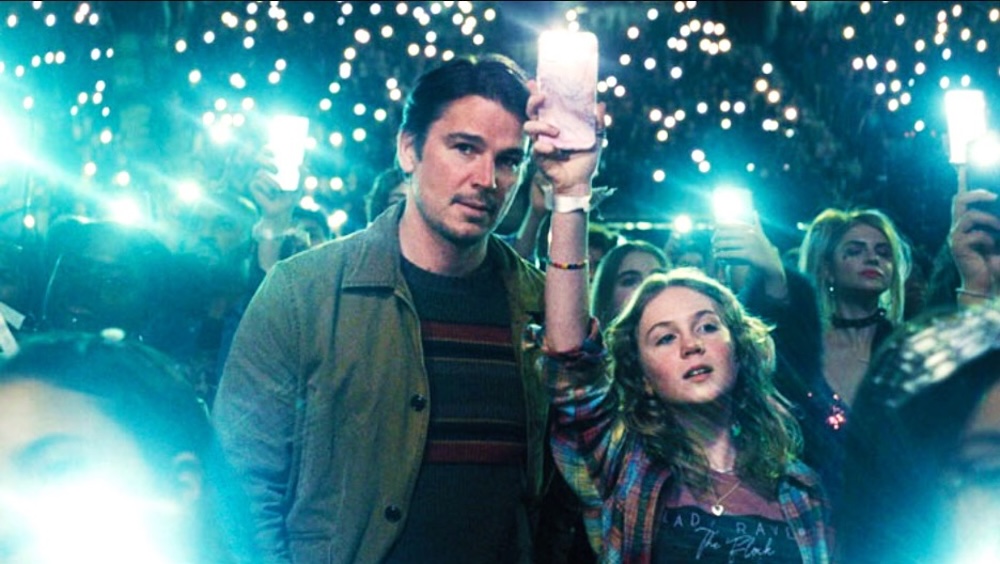
8. Trap (M. Night Shyamalan, USA, 105 minutes)
Ever since M. Night Shyamalan reinvented himself in 2015 by self-financing his own found footage film The Visit, I treat every single movie he makes as a gift, including Knock at the Cabin (2023), Old (2021), and Split (2016). With his most recent outing Trap, Shyamalan is having some enormous fun, this time setting his sights on contemporary pop culture. It sports some curiously thoughtful camerawork captured by Sayombhu Mukdeeprom, best known for his work with Apichatpong Weerasethakul on Uncle Boonmee Who Can Recall His Past Lives (2010) and Luca Guadagnino on Call Me by Your Name (2017).
Josh Harnett has my vote for best comeback performance of 2024 as an OCD father who takes his daughter to a concert of pop star Saleka (who also happens to be Shyamalan’s own daughter.) Pay attention to each of her quite-catchy songs; they may or may not be providing a cleverly constructed, allegorical road map through these troubled times. Also, major kudos to Kid Cudi’s “very curious” cameo and the inspired casting of legendary Disney actor Hayley Mills. This is campy culture-vulture at its best and I can’t wait for his 17th feature, which Knight has already started writing.
Available on all major streaming services.
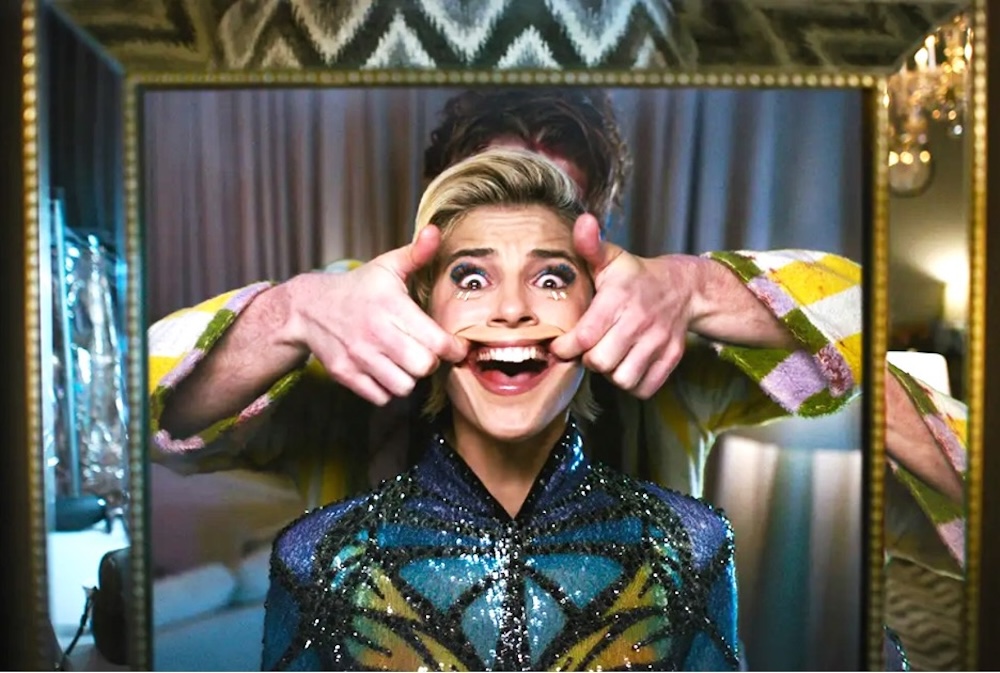
+ (plays with) Smile 2 (Parker Finn, USA, 132 minutes)
In a film that picks up just six days after the first Smile (2022) entry ends, writer-director Parker Finn finds his own voice with Disney Channel actor Naomi Scott, who goes full tilt as a pop-star sensation named Skye Riley. As she “begins to experience a series of increasingly disturbing events just as she is about to embark on tour,” this outrageously enjoyable mind-fuck spills over with surreal situations and psychotic monsters. Stick through the credits sequence, during which musician Cristobal Tapia De Veer goes insanely hard with a truly experimental culminating composition.
Available on all major streaming services.

9. Juror #2 (Clint Eastwood, USA, 114 minutes)
Clint Eastwood is 94 years old and has made an absolutely gripping courtroom drama in the spirit of Sidney Lumet’s 12 Angry Men (1957). Sporting substantial performances by Nicholas Hoult, Toni Collette, and J. K. Simmons, and spiked with a tantalizing denouement, there is absolutely no reason why Warner Brothers should have buried this film. Eastwood is one of our great cinematic masters and I suggest tracking down his other later-era treasures such as Richard Jewel (2019), The Mule (2018), The 15:17 to Paris (2018), and Sully (2016).
Available on all major streaming sites.
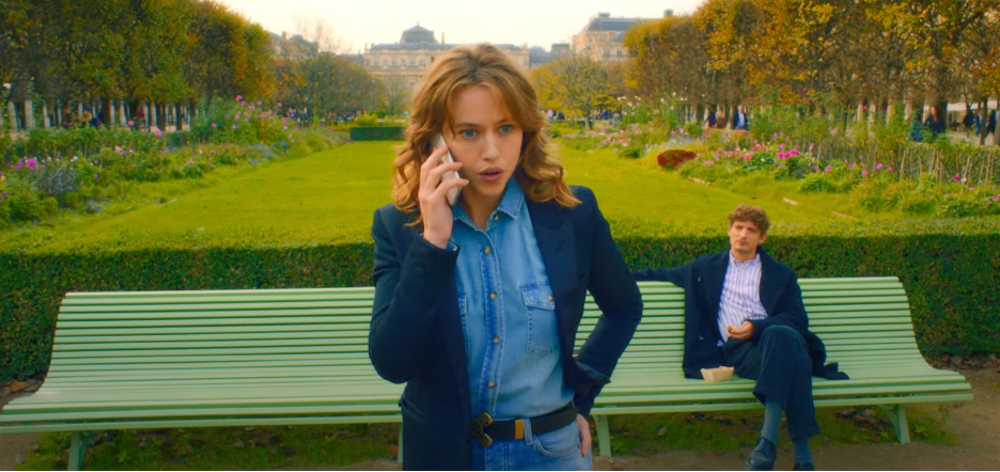
+ (plays with) Coup de chance (Stroke of Luck, Woody Allen, France, 96 minutes)
Woody Allen is 89 years old, and he has made an absolutely gripping romantic thriller in the spirit of Claude Chabrol’s Les Biches (1968). Gorgeously shot by the legendary 84-year-old cinematographer Vittorio Storaro (Apocalypse Now, Reds, The Last Emperor) this is the first film of Allen’s to be filmed entirely in French. Allen is one of our great cinematic masters and I suggest tracking down other later-era gems such as Rifkin’s Festival (2021), A Rainy Day in New York (2019), Wonder Wheel (2017), and Café Society (2016).
Available on all major streaming sites.

